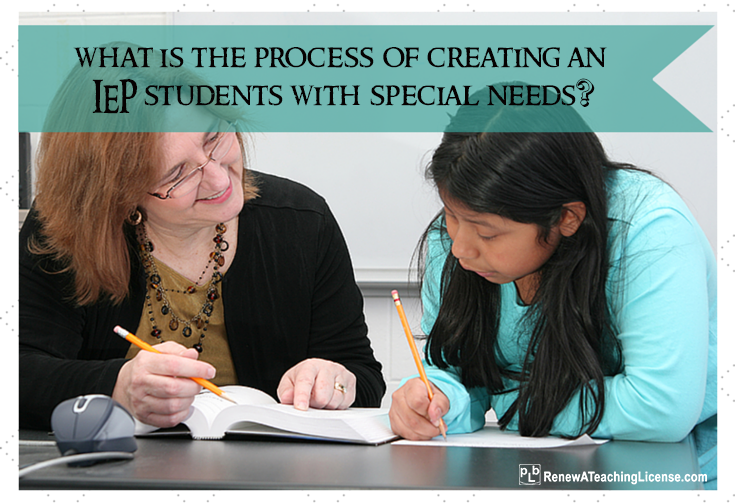What is the process for creating an IEP for students with special needs?
Posted by Network Support · Leave a Comment
Growing up can be very challenging for any child, especially if the child has any special needs. Each child is different and their problems may either be apparent from the start or surface as they begin school. If a child faces problems at school, then it is important to ascertain if it’s the result of a disability. The ‘special education process’ is a procedure by which the right students can be recognized for the program. It includes the following 4 steps:
1.Pre-Referral: Not all students facing learning challenges with traditional teaching methods require special education services. This necessitates a robust pre-referral process to ensure that the right candidates are identified for the IEP. A student may be recommended for the pre-referral process by a teacher, school staff person, or parent. Given their close interactions with students, general-education teachers usually play a larger role in this process. Using names such as Student Study Team (SST), Student Success Team (SST), Child Study Team (CST), or Special Education Team (SET), these pre-referral teams convene to discuss challenges faced by a student who is struggling, and to decide on and document the strategies and interventions they will use to assist the student in the general-education setting. On the basis of a student’s response to the interventions, the pre-referral team determines whether a referral for special education is merited at that time or not.
2.Referral: The Special Education Department gets involved once a student is recommended by the pre-referral team. The case manager or general-education teacher spends time with the parents discussing the efforts made by the pre-referral team and the reason for recommending their child for special education eligibility. A document will be put together by a case manager seeking permission to assess the student. This will be accompanied with a form to include the types of assessment, suspected area(s) of disability, such as autism spectrum disorder, communication disorder, learning disability, etc. The case manager and related services personnel begin the evaluation process following parental consent. Under legal mandate, this process needs to be concluded within 60 school days and may include some of the following: parent interview/developmental history, observation of the student, teacher interviews, file review, and disability-specific assessments.
3.Eligibility Determination: Once the referral process is complete, an eligibility determination meeting is scheduled. This meeting generally includes an administrator, the student’s parents/guardians and teacher(s), the case manager, and any other related services professionals who were engaged in evaluating the student. Reports by specialists are presented and discussed to determine whether the student meets all criteria that the state has in place to qualify as eligible under the suspected area(s) of disability. If the student meets the eligibility criteria to receive special education, as a first step, the team will now reconvene for an initial Individualized Education Plan (IEP) meeting.
4.IEP Development: After qualifying for Special Education, the IEP team meets together to determine the student’s individual needs. Appropriate goals and objectives are identified for the student to work on, along with the services that will be needed. The attendance and participation of all parties involved with the student is essential in helping to formulate important decisions. Absenteeism can lead to decisions being made that will likely affect the current way in which you are instructing and/or providing materials to your student, which you will be legally required to perform. The initial IEP document will be in effect for one year and is required to be updated and developed at least annually. However, an IEP meeting can be called at any time by any team member during the school year to discuss the student’s progress, placement concerns, new behavior challenges, etc.
Like this article for teachers?
Browse the Professional Learning Board COURSE CATALOG to find related online courses for teachers in your state. Professional Learning Board is a leading provider of online professional development classes that teachers use to renew a teaching license or renew a teaching certificate.





